Marie-Sissi Labrèche (Boréal)
En rassemblant douze nouvelles publiées dans les magazines depuis le début de sa carrière, Labrèche offre à nouveau sa non-pudeur, ses métaphores coup-de-poing et ses histoires d’enfance écorchée à coups de schizophrénie maternelle, d’antidépresseurs et d’inceste. D’un texte à l’autre, les lecteurs redéfiniront les limites de la nouvelle érotique, verront naître un amour interdit, goûteront aux saveurs acres de la métropole et découvriront les saletés qu’une femme peut laisser entrer en elle pour combler son vide affectif. Misant sur un côté trash qui continue de se démarquer de tous ceux qui tentent de l’imiter, Marie-Sissi Labrèche demeure une incontournable. (Samuel Larochelle)
Katherine Boo (Random House)
This Pulitzer Prize winning journalist doesn’t pull any punches in this must-read, nonfictional account of life in a Mumbai shantytown. Destitution, disease, danger and determination all colour the existence of those who live in Annawadi, a makeshift settlement dwarfed by new luxury hotels sprouting up near the Mumbai airport. Undaunted by the fast growth, the settlement’s residents see opportunity where cast(e) shadows are the darkest—in the recyclable garbage the rich so carelessly throw away, in the unguarded scrap metal at construction sites, in the pervasively thorny conditions of political corruption. Opportunity, however, does not easily translate into “happily ever after”, as you will be reminded, time and time again throughout the telling of this gripping true story. (Hilary Schaenfield)
Chris Ware (Pantheon)
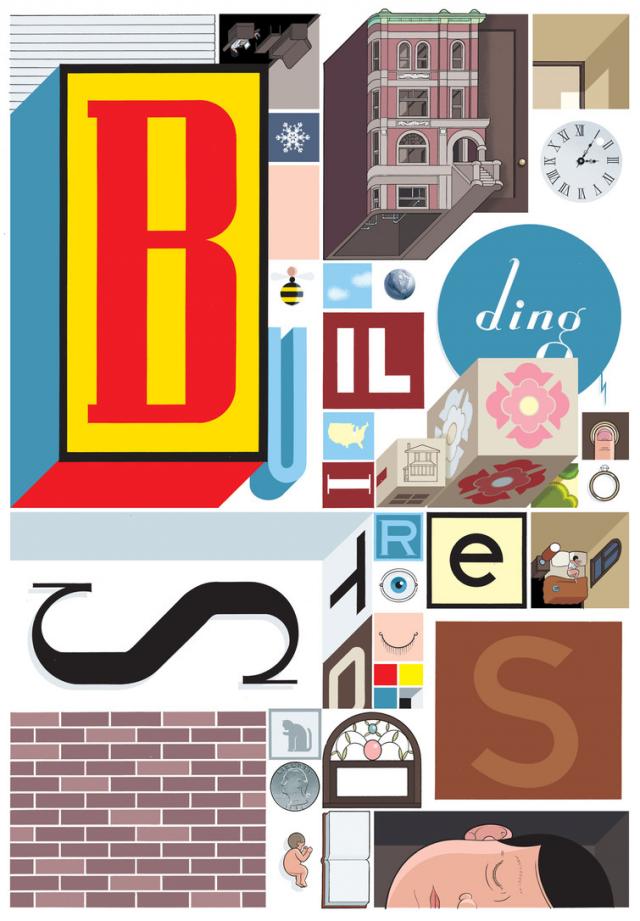
This ain’t one for the Kindle, my friends. In an age of everything ephemeral and electronic, Chris Ware’s fascinating graphic novel-in-pieces/board game-boxed compendium of pamphlets, newspapers, books, booklets and magazines (14 pieces in all) offers up something solid to hold onto. You can manhandle and read each piece in any sequence you like, alone or mashed together—Ware doesn’t tell you how to go about it. With several character storylines to follow, intertwine and build upon (the young florist, the elderly landlady, the depressed girlfriend with the abusive boyfriend, a bee named Branford), you’ll be at this “novel” for hours. Or, maybe not, as the subject matter can be quite weighty and, at times, terribly depressing. But it's okay—it's the good kind of depressing. (Hilary Schaenfield)
Alexandre Soublière (Boréal)
Quand un fils à papa atteint d’une maladie des os tombe excessivement amoureux d’une danseuse bipolaire, quand un groupe d’amis entre par effraction dans une maison de banlieusards partis en voyage pour faire la fête, s’exploser la tête, pisser sur le divan et baiser dans la chambre des maîtres, quand un jeune auteur possédant un talent brut pour l’écriture trouve le moyen d’utiliser le langage franglais-abrégé-métaphorique de la jeunesse d’aujourd’hui, ça donne quelque chose comme Charlotte Before Christ. Un soupçon de Roméo et Juliette, une pincée de Requiem for a dream et une pelletée d’Alexandre Soublière, qu’on espère retrouver encore et encore. (Samuel Larochelle)
Notre entrevue avec Alexandre Soublière
J.B. Staniforth (Invisible Publishing)
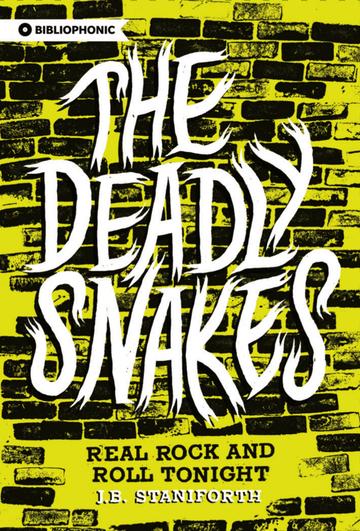
Time to pimp some hometown talent! As a lover of garage rock myself, J.B. Staniforth’s first published full-length was an obvious choice when it came to showcasing local literary standouts. The Deadly Snakes follows the rise and fall of a truly Canadian, steadfastly independent, balls to the wall group of garage-playing mofos. See Staniforth carefully interview each member of the namesake band, getting inside their heads, their hearts, and their innermost resentments, exploring and exploding their motives for staying together as long as they did. If you are a touring musician (not the Justin Bieber-type touring musician, but one who has to load their own equipment and bunk out at a stranger’s shitty apartment after a gig), a music fan, or a kid who dreams of forming a band one day, then this book is definitely for you.
Marie-Hélène Poitras (Alto)
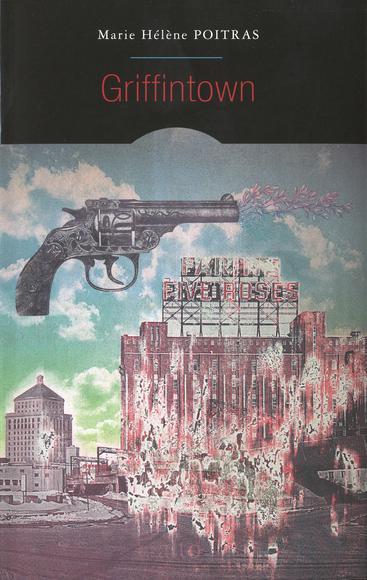
En campant son western des temps modernes dans les rues de la métropole, Marie-Hélène Poitras (NLDR: ancienne collaboratrice au Nightlife) offre un accès privilégié à l’univers peu connu des cochers du Vieux-Montréal. Trottant d’une page à l’autre avec une douceur poétique qui ne manque pas de rythme, l’auteure fait le portrait de personnages plus grands que nature et décrit habilement les règles, les habitudes et les secrets d’un milieu bien difficile à pénétrer. Avec ses histoires de chevaux, de gentrification, de meurtre et d’humanité, Griffintown a le mérite de ne ressembler à aucun autre roman de votre bibliothèque. (Samuel Larochelle)
David Byrne (McSweeney’s)
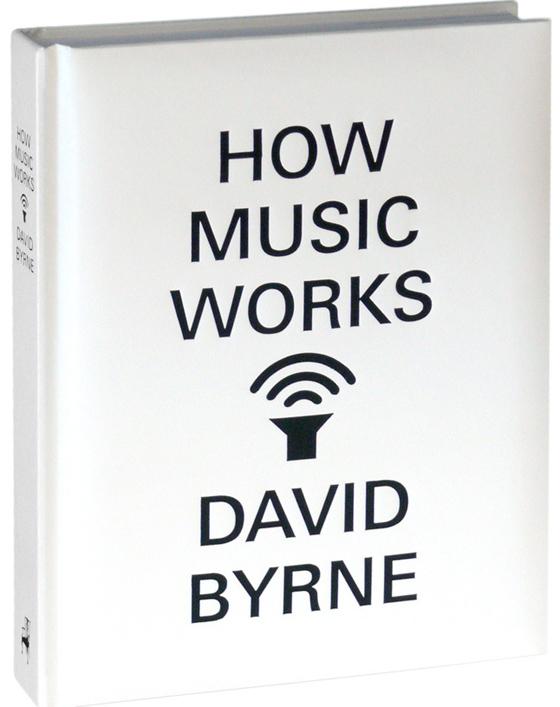
A brilliant book for music aficionados and Talking Heads fans alike. To quote myself (a reliable source if there ever was one): “Byrne deftly delineates the way music is affected by place, time, finance, interpersonal relationships and technology. He then goes on to explain how each factor works to alter the way we experience songs, and closes the circle by showing how listeners impact both musical progress and the musicians themselves. His exploration of performance, religion and socio-cultural conventions deserves close attention, as does his account of how his seminal New Wave band, the Talking Heads, originated and evolved.”
Daniel Smith (Simon & Schuster)
Brains! BRAAAAIIINSSS! I must have gray matter on the mind, because on my long list of 2012 standouts stood both journalist Susannah Cahalan’s frighteningly true story, Brain On Fire: My Month of Madness, as well as neurologist Oliver Sacks’ newest treatise on all things trippy and peculiar, Hallucinations. However, it was Daniel Smith’s absurdly hilarious but ultimately relatable story about life with acute anxiety that ended up pushing itself ahead of the rest. The book begins with Smith stating, “This is no recovery memoir”…well, no—actually, the book begins with Smith talking to a vagina, but…oh, just go and read the book! (Hilary Schaenfield)
Doug Harris (Stanké)
Brillant hommage à la connerie, ode à l’écriture irrévérencieuse, piédestalisation du perdant sympathique, T’es con, point offre à Doug Harris une tribune pour juger ses personnages avec un je-ne-sais-quoi de franchement libérateur. Possédant l’habileté de raconter un peu n’importe quoi avec trop de détails, sans jamais perdre ses lecteurs en chemin, l’auteur visite le Montréal anglophone en compagnie de Lee Goodstone, antihéros par excellence, qui est du genre à coucher avec la copine de son meilleur ami et à s’embourber dans une histoire de drogue, de disparition et de journaliste fouineuse. Un premier roman extrêmement solide et divertissant. (Samuel Larochelle)
Vickie Gendreau (Le Quartanier)
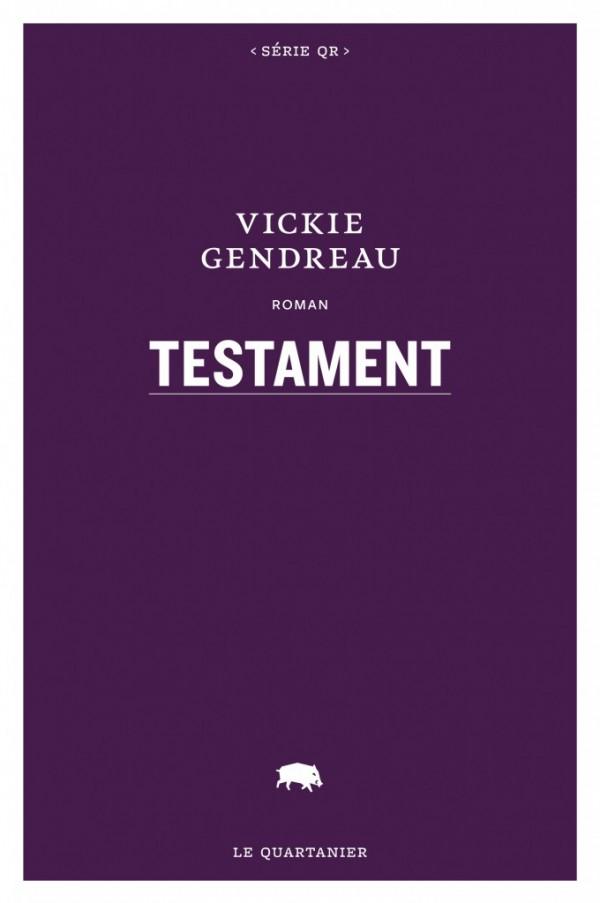
Écrivant avec une finesse percutante et une poésie urbaine qui n’a rien de rébarbatif, Gendreau met des mots sur son passé de danseuse nue et sur son présent de jeune femme atteinte d’une tumeur mortelle. Douce et revêche, sensible et blessée, elle nous raconte un amour à sens unique, nous offre sa vision des bars d’effeuilleuses et nous ouvre les portes d’un cerveau qui n’a plus le luxe de conjuguer sa réalité au futur. Testament ne mérite pas qu’on s’y intéresse parce que son auteure pourrait mourir incessamment, mais plutôt parce qu’une magnifique plume vient de naître. (Samuel Larochelle)